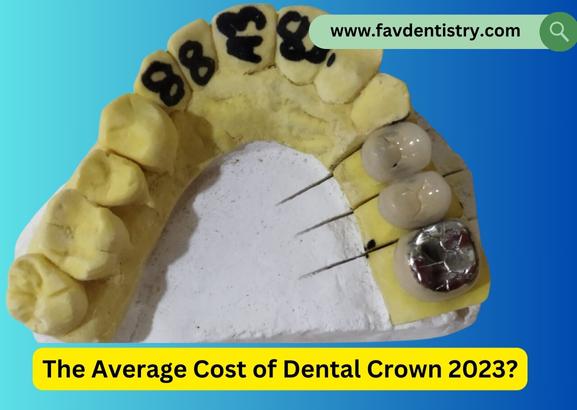Last Updated on 3 weeks by DR. ALBIN SIPES
A dental crown is a cap that covers a tooth to restore its shape and function, while a root canal is a procedure to save a severely decayed or infected tooth by removing its nerve and blood supply. Both treatments aim to preserve the tooth, but a crown is used when the tooth is structurally damaged, while a root canal is needed when the tooth’s pulp is infected or inflamed.
Dental professionals can advise on the best course of action based on the specific dental condition. The choice between a dental crown and a root canal depends on the extent of damage to the tooth and the desired outcome for the patient.
What Are Dental Crowns?
Dental crowns are often used to restore damaged or weakened teeth. They serve multiple purposes, such as protecting a tooth that has undergone a root canal treatment or covering a dental implant. Dental crowns offer several benefits, including improved tooth appearance, increased durability, and enhanced functionality.
These crowns can be made from various materials, such as porcelain, ceramic, metal, or a combination of these. The procedure for getting dental crowns involves several steps, including tooth preparation, impression taking, and crown placement. Once the crown is in place, proper care is essential to maintain its longevity.
Regular brushing, flossing, and dental check-ups are crucial for ensuring the well-being of dental crowns. By following these steps, individuals can enjoy the benefits of dental crowns and preserve their oral health.
What Are Root Canals?
Root canals are a dental procedure that involves removing infected or damaged pulp from the tooth. It is done to save the tooth from extraction. Root canals are needed when there is severe tooth decay or infection that reaches the pulp.
The benefits of root canals include pain relief, saving the natural tooth, and restoring dental function. The procedure for root canal treatment involves cleaning and shaping the root canal, filling it with a biocompatible material, and sealing it. After the treatment, it is essential to take care of the tooth by practicing good oral hygiene habits and scheduling regular dental check-ups.
Root canals are an effective way to treat tooth infections and restore dental health.
Frequently Asked Questions For Dental Crown Or Root Canal
What Is A Dental Crown And When Is It Needed?
A dental crown is a tooth-shaped cap used to restore the shape, strength, or appearance of a damaged tooth. It is typically needed when a tooth is severely decayed, weakened, or fractured, or after a root canal procedure.
What Is A Root Canal And When Is It Necessary?
A root canal is a dental procedure that involves removing the infected pulp from the inside of a tooth and filling it with a special material. It is necessary when the tooth’s pulp becomes infected or inflamed due to deep decay, repeated dental procedures, or trauma.
Do Dental Crowns Require A Root Canal?
Not all dental crowns require a root canal. If the tooth is healthy and only needs a crown for cosmetic reasons or to repair a small chip, a root canal is not necessary. However, if the tooth has significant decay or damage that extends to the root, a root canal may be needed before placing the crown.
Can A Dental Crown Replace A Root Canal?
No, a dental crown cannot replace a root canal. While both procedures address different dental issues, they can often be performed together. A root canal treats an infected or inflamed tooth pulp, while a crown restores the shape, strength, or appearance of a damaged tooth.
What Is The Success Rate Of Dental Crowns And Root Canals?
The success rate of dental crowns and root canals is high. With proper oral hygiene and regular dental check-ups, dental crowns can last for many years. Root canals have a success rate of around 95%, offering long-term relief and preservation of the natural tooth.
Are Dental Crowns Or Root Canals Painful?
Both dental crowns and root canals are usually performed under local anesthesia, ensuring minimal discomfort during the procedures. Some patients may experience mild sensitivity or discomfort in the days following the treatment, but it can be managed with over-the-counter pain relievers and usually subsides within a few days.
Conclusion
Ultimately, the decision between a dental crown or root canal depends on the specific dental issue you are facing. Dental crowns are a great option if your tooth is severely damaged or has a large filling. They can improve the appearance of your smile and provide additional support and protection to weakened teeth.
On the other hand, a root canal is necessary when the pulp of your tooth becomes infected or damaged. By removing the infected pulp and filling the space, a root canal can save your tooth from extraction and alleviate pain.



